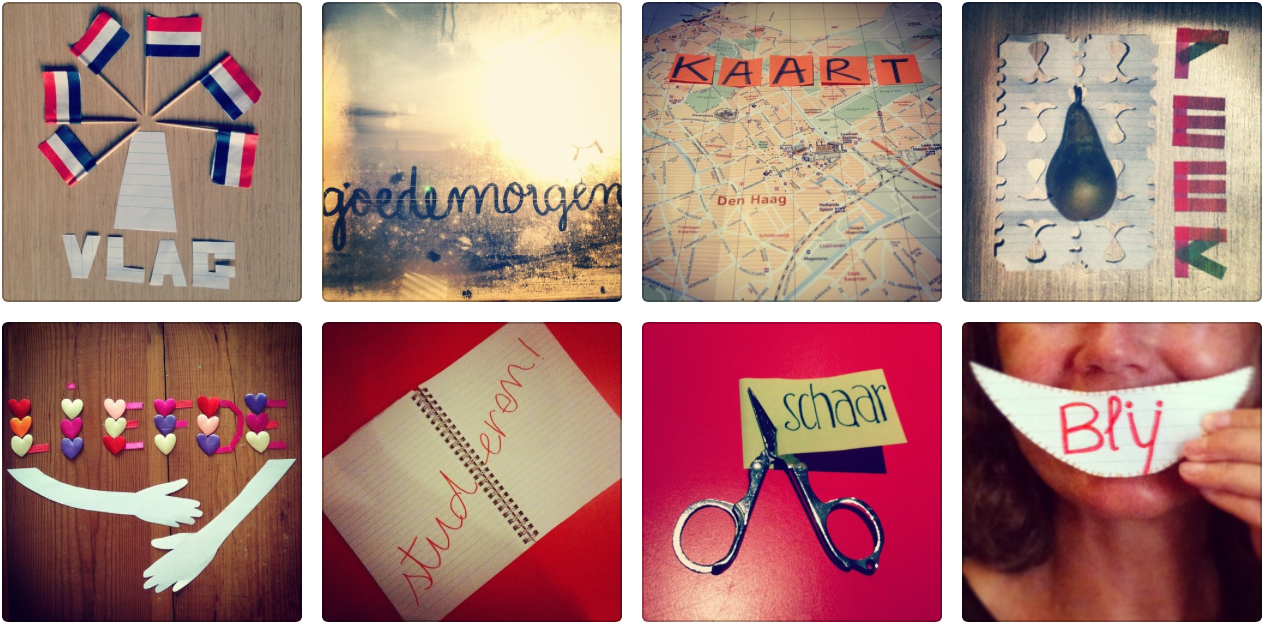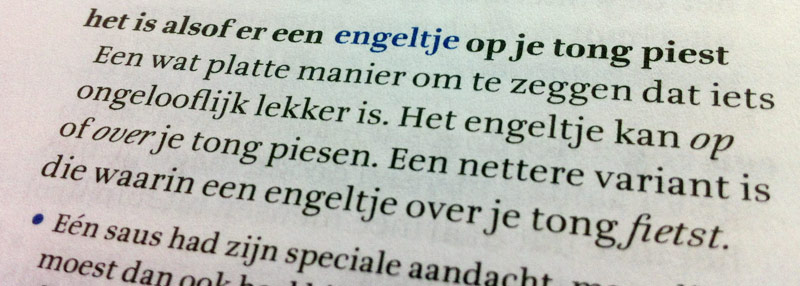So I graduated from my Dutch class, and my main take-away is that Dutch does not feel weird anymore. I’ll admit it: Until a couple of weeks ago, my German-trained mind found Dutch pretty funny. All those double vowels, and the word choice (and word order) that is mostly comprehensible, but just different enough that it seems cutely off… belangrijke vitaminen* in my yoghurt, people telling others to bellen** or to run the sea in***, ha ha. Now that I’ve learnt the basics of Dutch, the language has begun to make a surprising lot of sense – to the point that I’ve started to replace ei by ij in some German words, and using those previously-funky double vowels… the thing is, Dutch spelling is super-logical. A word like brood (bread) sounds like it looks, with a loooong “o”; and while the German word sounds very similar, it is spelled Brot – which now looks like it should sound like “brott”. Maybe the two are just too close for comfort? Well, if my command of my mother tongue gets a bit weird over the next months, I hope that will be temporary – and signify that my Dutch is getting proportionally better. :-)
My classmate Inês, who is also a designer, has found a cool way to make studying vocabulary visual, and more fun: For a few months now she has been posting “A Dutch Word a Day” – cute analog illustrations of Dutch words:
Generally, I feel quite happy to have gotten a peek inside the workings of this language – not just because I’ll at least partly have to operate with it in everyday life for the next year or so, but also because its representation in letters has such a proud and beautiful tradition. Indeed, typography in the Netherlands is often (if by far not always) beautiful, and unmistakably Dutch. The latest example I encountered is the Groot Uitdrukkingen woordenboek (Van Dale) that my teacher let me look at in the lunch break one day – a book I found very hard to put down, and might just have to get for myself. It also felt incredibly Dutch, and a quick look at the colophon revealed that it is in fact typeset in TEFF Ruse by Gerrit Noordzij himself, originator and father-in-spirit of the type design graduate class here in The Hague, which I am getting very excited about entering very soon now.
Picture below shows the typography… and my favorite idiom so far.


Interesting thoughts Nina! I’m sure you’ll get expert on Dutch soon!! Thank you for mention my project “a Dutch Word a Day” ;)
Hi Nina, you’re right. Our two languages are too close for comfort. I’ve just paid attention to VAREN (sail) in my word of the day on Facebook. It struck me that German ‘fahren’ (fahren, fahren auf der Autobahn, Kraftwerk) is close and yet so far… In English it is ‘fare’. We could construct some kind of Esperanto based on all Germanic languages, using the simplest of grammars. So no cases and no complicated word endings. We’ll ban all French and Latin words. We’d get sentences like: wij varen, varen, varen op de autobaan en we varen, varen, varen op de zee. Er zijn veel goed vitamines in de lekker vers broot. What about it? On second thoughts no… Der Rudi Carrell was so charming because of his Dutch Deutsch and a German makes Dutch sound like fun. And that’s the way it should be.
Hi Ruud, this reminds me a bit of the “Skandinavisk” that people from Denmark, Norway and Sweden speak with each other. A dear Norwegian friend explained to me that when he speaks to Swedes or Danes, they look for a “middle ground” in their languages where they leave out words, expressions and constructions that are too specific to any of the languages, and try to pronounce very clearly to make the language mutually comprehensible. I have the impression that those languages are even closer to each other than Dutch and German, though.
(“A German makes Dutch sound like fun”, really?)
Hi Nina, that’s interesting. I didn’t know that the Scandinavians speak “Skandinavisk”. I only know that Scandinavians and Germans learn Dutch very quickly. The main difference between “Skandinavisk” and Dutch is the pronunciation, but words and grammar are very similar.
When Germans speaks Dutch, even when they’re near perfect, it sounds as if they like the language and the dimension they give to it makes me like my own language even more. They sound as if they are playing with the language. That’s what I mean by fun.